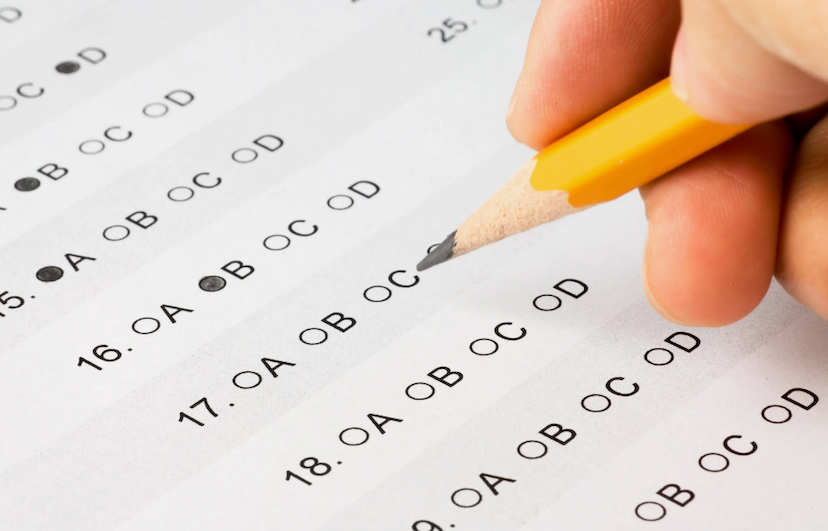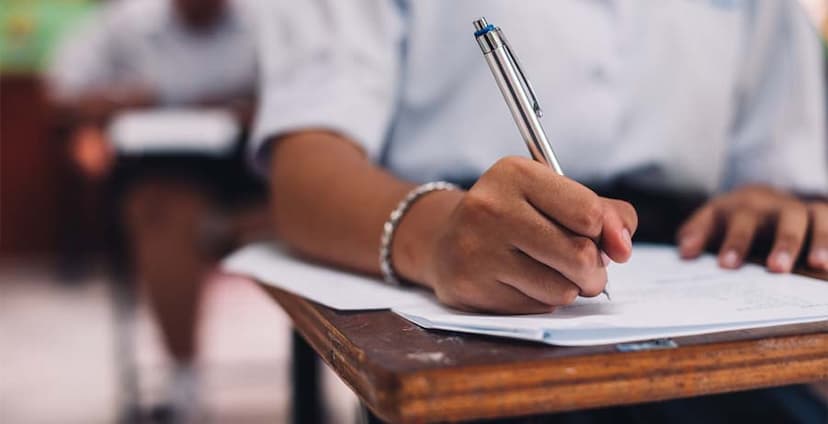B Pharmacy Course in India: All The Details You Want To Know

B Pharmacy Course in India is about the study of pharmacy course at graduation level.
The academic program is popular as B Pharmacy or Bachelors in Pharmacy. It is also widely known by another name ‘B Pharma.’


Though the academic course may be offered in various other countries, this story on B Pharmacy Course in India is about the program offered in India.
Those interested in studying B Pharma in foreign shores can refer to other sources available both online and offline.
Information on B Pharmacy Course in India is provided below for the sake of the students:

Regular
B Pharmacy course in India is available in regular stream and lateral entry mode also.
Those who have studied plus-two in biology, physics and chemistry from a recognized educational institution can opt for B Pharmacy Course in India through regular stream.
Those who have completed diploma or polytechnic in subject of pharmacy or its allied disciplines can opt for studying B Pharmacy Course in India through lateral entry mode.

Eligibility to study B Pharmacy Course in India (Regular)
– 10+2 with Physics, Chemistry, and Biology/Mathematics (PCB/M)
– Minimum 50% aggregate marks
– Entrance exams like NEET, GPAT, or state-specific exams
Point to remember
Students keen on studying B Pharmacy course in India may have to also pass entrance exams along with having the required educational qualifications.
Seats in B Pharmacy course in India may be provided by certain institutions based on merit, performance in the qualifying exam.
A few other institutions may conduct their own entrance exams for considering the students for admission in B Pharmacy Course in India.

While a couple of other institutions may provide admission based on scores in well-known exams like NEET.
Students must make enquiries before applying for B Pharmacy Course in India.
They can approach the colleges offering the course or search various sources online to obtain the required information.
Entrance Exams for B Pharmacy Admission through regular stream
Some of the popular entrance exams to pass for securing a seat in B Pharmacy Course in India are mentioned below:
1. NEET (National Eligibility cum Entrance Test): A national-level exam for admission to BPharmacy and other medical courses.
2. GPAT (Graduate Pharmacy Aptitude Test): A national-level exam for admission to MPharmacy and BPharmacy courses.
3. PU CET (Panjab University Common Entrance Test): For admission to BPharmacy courses in Panjab University and its affiliated colleges.
4. UPCET (Uttar Pradesh Combined Entrance Test): For admission to BPharmacy courses in Uttar Pradesh.
5. KCET (Karnataka Common Entrance Test): For admission to BPharmacy courses in Karnataka.
6. TS EAMCET (Telangana State Engineering, Agriculture and Medical Common Entrance Test): For admission to BPharmacy courses in Telangana.
7. AP EAMCET (Andhra Pradesh Engineering, Agriculture and Medical Common Entrance Test): For admission to BPharmacy courses in Andhra Pradesh.
8. MHT CET (Maharashtra Health Sciences and Technical Common Entrance Test): For admission to BPharmacy courses in Maharashtra.
9. WBJEE (West Bengal Joint Entrance Examination): For admission to BPharmacy courses in West Bengal.
10. OJEE (Odisha Joint Entrance Examination): For admission to BPharmacy courses in Odisha.
Point to remember
Some colleges may also conduct their own entrance exams or consider state-level entrance exams for admission.

Lateral Entry
Lateral Entry means, entering the B Pharmacy course in second year, instead of the usual first year.
Eligibility (Lateral Entry)
Those who have completed Diploma in Pharmacy (D Pharmacy) or course equivalent to it from a recognized educational institution can aim for lateral entry into B Pharmacy course in India.
Duration
The course is of three year duration, if the admission is through lateral entry mode. More details are below:
– First year: Completed during the Diploma in Pharmacy (DPharmacy) program
– Second year: Admitted through lateral entry
– Third year: Complete the third year of the BPharmacy program
– Fourth year: Complete the final year of the BPharmacy program
So, in total, lateral entry students complete 3 years of the BPharmacy program after completing their DPharmacy.
The total duration of the B Pharmacy program, including the lateral entry, is 5 years (2 years of DPharmacy + 3 years of BPharmacy).
Colleges offering B Pharmacy Course in India
Regular
– Jamia Hamdard, New Delhi
– Panjab University, Chandigarh
– Institute of Chemical Technology, Mumbai
– Birla Institute of Technology, Ranchi
– JSS College of Pharmacy, Mysuru
Lateral Entry
– Calcutta Institute of Pharmaceutical Technology and Allied Health Sciences: Offers a 3-year Bachelor of Pharmacy (B.Pharma. Lateral Entry) course at the UG level.
– LPU: Offers a 3-year Pharmacy (Lateral Entry) course post-Diploma in Pharmacy.
– UPUMS: Offers a 3-year Bachelor of Pharmacy (B.Pharm. Lateral Entry) course at the UG level.
– GLA University: Offers a BPharm Lateral Entry course accredited by the Pharmacy Council of India.
– HPTU Hamirpur: One of the top B Pharm Lateral Entry colleges in India.
– Government College of Pharmacy Rohru: One of the top B Pharm Lateral Entry colleges in India.
– Swami Keshvanand Institute of Technology, Management & Gramothyan: One of the top B Pharm Lateral Entry colleges in India.
– Puran Murti Campus: Offers B.Pharmacy LEET admission through LEET (lateral Entry entrance test).
– DIT University: Offers a 3-year Bachelor of Pharmacy (B.Pharm. Lateral Entry) course at the UG level.
– Usha Martin University: Offers a Bachelor of Pharmacy lateral entry course.
Entrance Exams For B Pharmacy Admission Through Lateral Entry
– Lateral Entry Entrance Test (LEET)
– Pharmacy Lateral Entry Test (PLET)
– State-specific lateral entry exams
Course Syllabus
What are the lessons that are taught as a part of B Pharmacy Course in India. The topics to study for students as a part of B Pharmacy Course in India are mentioned below:
First Year
1. Pharmaceutics: Introduction to pharmacy, pharmaceutical calculations, and pharmaceutical chemistry.
2. Pharmaceutical Chemistry: Organic chemistry, inorganic chemistry, and biochemistry.
3. Pharmacology: Introduction to pharmacology, pharmacokinetics, and pharmacodynamics.
4. Pharmacognosy: Introduction to pharmacognosy, plant anatomy, and plant chemistry.
5. Biochemistry: Biochemistry, biophysics, and molecular biology.
6. Pharmaceutical Engineering: Introduction to pharmaceutical engineering and pharmaceutical technology.
Second Year
1. Pharmaceutics: Pharmaceutical dosage forms, pharmaceutical manufacturing, and pharmaceutical packaging.
2. Pharmaceutical Chemistry: Medicinal chemistry, pharmaceutical analysis, and pharmaceutical quality control.
3. Pharmacology: Pharmacology of autonomic nervous system, pharmacology of cardiovascular system, and pharmacology of respiratory system.
4. Pharmacognosy: Phytochemistry, pharmacognosy of medicinal plants, and herbal drug technology.
5. Pharmaceutical Microbiology: Microbiology, immunology, and pharmaceutical biotechnology.
6. Pharmaceutical Engineering: Pharmaceutical process engineering, pharmaceutical equipment, and pharmaceutical plant design.
Third Year
1. Pharmaceutics: Advanced pharmaceutical dosage forms, pharmaceutical technology, and pharmaceutical biotechnology.
2. Pharmaceutical Chemistry: Advanced medicinal chemistry, pharmaceutical analysis, and pharmaceutical quality control.
3. Pharmacology: Pharmacology of central nervous system, pharmacology of endocrine system, and pharmacology of gastrointestinal system.
4. Pharmacognosy: Advanced phytochemistry, pharmacognosy of medicinal plants, and herbal drug technology.
5. Pharmaceutical Marketing and Management: Pharmaceutical marketing, pharmaceutical management, and pharmaceutical economics.
6. Pharmaceutical Jurisprudence: Pharmaceutical laws, pharmaceutical ethics, and pharmaceutical regulatory affairs.
Fourth Year
1. Project Work: Research project in any area of pharmacy.
2. Clinical Pharmacy: Clinical pharmacy practice, pharmaceutical care, and patient counseling.
3. Advanced Pharmacology: Advanced pharmacology, pharmacogenomics, and personalized medicine.
4. Pharmaceutical Biotechnology: Pharmaceutical biotechnology, genetic engineering, and biopharmaceuticals.
5. Electives: Choose from various electives like pharmaceutical nanotechnology, pharmaceutical informatics, etc.

Those who become a student through lateral entry would be studying from the second year.
Fees
B Pharmacy Course India could incur a cost of Rs 3,000 to Rs 4,00,000 per year. This is an estimation arrived after referring to various sources online and offline.
In certain other colleges, fees may range from Rs 30,000 to Rs 1,00,000 per year.
If semester system is in vouge, the fees could range from Rs 1,500 to Rs 50,000 per semester.
Students of regular stream will pay fees for all four years, while the lateral entry mode students would pay fees for three years, as they would be joining from the second year.
Also Read – Top 20 Management Colleges in Kerala
Pay prospects
– Freshers: ₹3,00,000 – ₹5,00,000 per annum
– Experienced professionals: ₹6,00,000 – ₹12,00,000 per annum
Career Scope
– Growing demand for pharmacists in healthcare and pharmaceutical industries
– Opportunities for higher education (MPharmacy, PhD) and specialization
– Scope for entrepreneurship and opening own pharmacies or pharmaceutical businesses
S Vishnu Sharmaa now works with collegechalo.com in the news team. His work involves writing articles related to the education sector in India with a keen focus on higher education issues. Journalism has always been a passion for him. He has more than 10 years of enriching experience with various media organizations like Eenadu, Webdunia, News Today, Infodea. He also has a strong interest in writing about defence and railway related issues.









